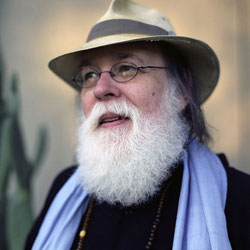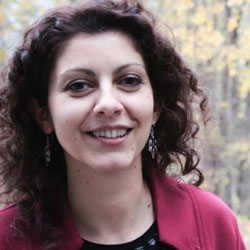The sight of the songbirds at dusk,
through a ring of
ungraphed space,
made me promise myself weapons.
The sight of weapons, hands;
the sight of hands, the line
long since described by a flat, sharp
rock,
– you, wave,
carried it here, sharpened it,
you, Un-
losable One, gave yourself to it,
you, beach sand, are the taker,
partaker,
you, shore-grass, drift
your share –
the line, the line
we swim through, twice each
millennium, tied up
in each other,
and not even the sea,
sublime unfathomable sea
that runs alive through us,
can believe
all the singing in our fingers.
Notes on the Poem
The words of poet Paul Celan journeyed far to reach us here. Celan was born in Romania and raised speaking and reading German. He survived the Holocaust and continued with his work after settling in Paris after the war. Although he spoke at least six languages and worked as a translator of French, Russian and English literature, he insisted on writing his poetry solely in German. Translators Nikolai Popov and Heather McHugh carefully carried that original poetry into English, encapsulated in the 2001 Griffin Poetry Prize winning collection Glottal Stop: 101 Poems by Paul Celan. The judges' citation for the collection both laments the arduous journey of these words, and shows gratitude for Popov and McHugh's steadfast and sensitive work in translating them: "... much of [Celan's] work has seemed too hermetic, linguistically complex, and bound to his struggle with the German language in the aftermath of the Shoah to be translatable." Magic alchemized from an alloy of Popov and McHugh's resourcefulness, creativity and nimbleness with language has rendered up poems as simultaneously beautiful and unnerving as "The sight of the songbirds at dusk". There is a pervasive sense of flow in the momentum of the words and lines - after the disarmingly abrupt opening lines, leaping from birds to weapons - where one image seems to hand off to another. Impelling forces seem to be driving things forward - carrying, taking, partaking, swimming - but also moving backward, possibly eroding, drifting at the same time. This gentle, continuous sense of unrelenting motion ... could it perhaps symbolize the passage from one language to another to another?







